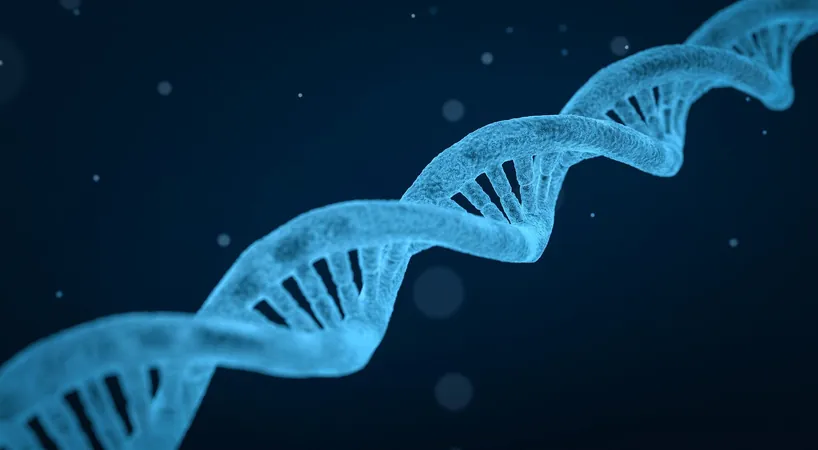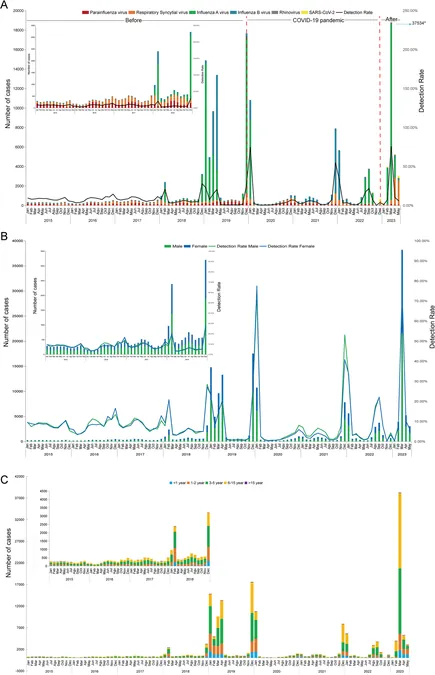
Revolutionary Breakthrough in Barth Syndrome Treatment Offers New Hope
2025-09-03
Author: Jia
A Promising Discovery for Barth Syndrome Patients
Researchers at The Hospital for Sick Children (SickKids) have made an astonishing discovery that could change the lives of those suffering from Barth syndrome, a rare genetic disorder lacking an effective treatment. Affecting primarily males, this condition leads to severe muscle weakness, frequent infections, and life-threatening heart issues.
Barth Syndrome: A Rare Condition with Devastating Effects
Barth syndrome is caused by mutations in the TAFAZZIN gene, crucial for mitochondrial function and energy production. With approximately 500 diagnosed cases globally, most children afflicted face dire health challenges; many do not survive beyond early childhood. While heart transplants can help manage cardiac problems, they are not a complete solution.
The Game-Changing Role of ABHD18
In a groundbreaking study published in "Nature," a multidisciplinary team revealed that inhibiting a newly identified gene called ABHD18 can restore the health of mitochondria and enhance heart function in preclinical models of Barth syndrome. This represents a significant leap toward potential targeted therapies for affected individuals.
Dr. Jason Moffat, the study's lead scientist, emphasized the importance of genomic research in unraveling the mysteries of many genes, stating, "Now we know that ABHD18 plays a crucial role in healthy mitochondrial development, opening doors to new therapies not just for Barth syndrome but possibly for other cardiac conditions as well."
Uncovering the Mystery of TAFAZZIN Dysfunction
Dr. Sanna Masud, who spearheaded the genetic analysis in Moffat’s lab, identified ABHD18 through extensive genetic screening. Initially, this gene was largely uncharacterized. Further experimentation unveiled its critical role as a regulator in cardiolipin metabolism, further illustrating the complexities of Barth syndrome.
Turning Off the Suppressor: A New Therapeutic Pathway
ABHD18 functions as a suppression gene that exacerbates the problems caused by the malfunctioning TAFAZZIN gene. Instead of trying to fix TAFAZZIN directly—an endeavor fraught with challenges—the researchers focused on inhibiting ABHD18 to alleviate its negative impact. Dr. Vincent Blomen, a co-leader of the study, expressed excitement over the findings, noting, "This approach of targeting a secondary gene to reverse effects related to TAFAZZIN deficiency is among the most compelling discoveries we've seen."
Harnessing Small-Molecule Innovations for Therapy
By using a small-molecule drug known as ABD646 to inhibit ABHD18, researchers successfully reduced hazardous lipid levels in various preclinical models of Barth syndrome. Their experiments, which utilized both zebrafish models and patient-derived cells, demonstrated improved mitochondrial function and heart health.
"Our findings provide a direct strategy to address the fundamental issues posed by this rare condition, offering real hope to patients and families," Dr. Moffat concluded. "This research exemplifies how innovative science can lead to new treatments for some of the most obscure and challenging health conditions."




 Brasil (PT)
Brasil (PT)
 Canada (EN)
Canada (EN)
 Chile (ES)
Chile (ES)
 Česko (CS)
Česko (CS)
 대한민국 (KO)
대한민국 (KO)
 España (ES)
España (ES)
 France (FR)
France (FR)
 Hong Kong (EN)
Hong Kong (EN)
 Italia (IT)
Italia (IT)
 日本 (JA)
日本 (JA)
 Magyarország (HU)
Magyarország (HU)
 Norge (NO)
Norge (NO)
 Polska (PL)
Polska (PL)
 Schweiz (DE)
Schweiz (DE)
 Singapore (EN)
Singapore (EN)
 Sverige (SV)
Sverige (SV)
 Suomi (FI)
Suomi (FI)
 Türkiye (TR)
Türkiye (TR)
 الإمارات العربية المتحدة (AR)
الإمارات العربية المتحدة (AR)